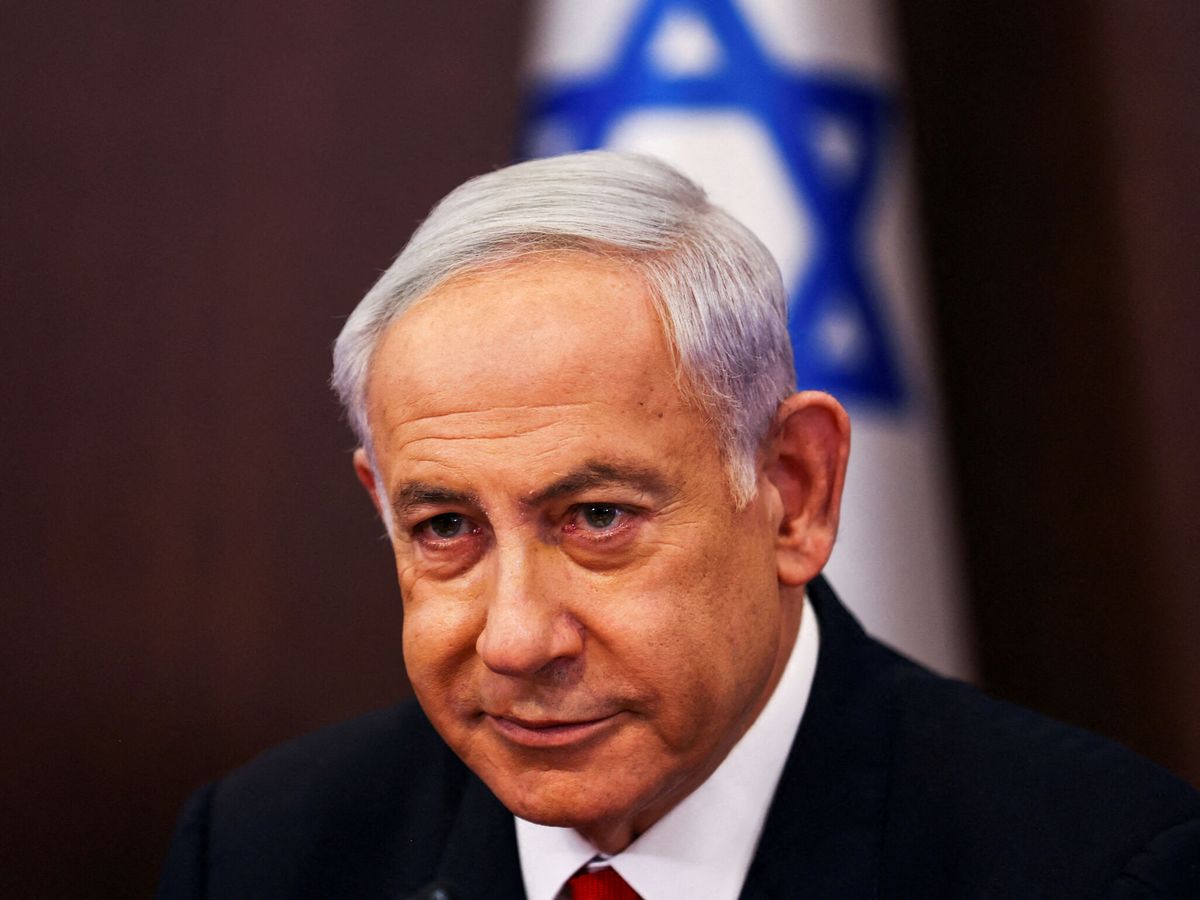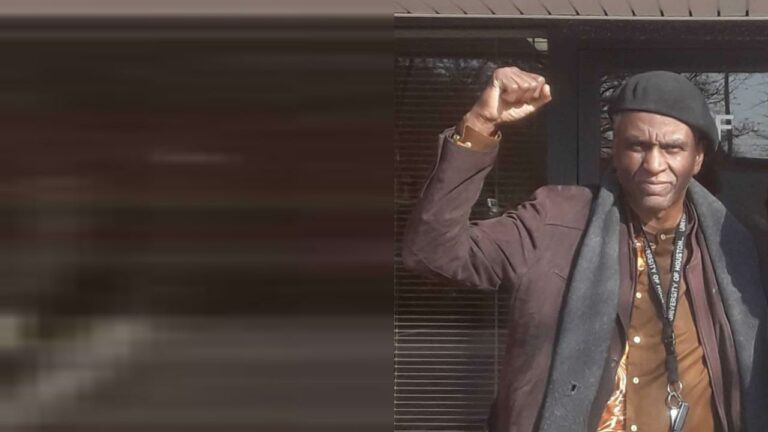Netanyahu’s Greater Israel Based on Expulsion and Annexation – Max Blumenthal (pt 3/5)
This is an episode of Reality Asserts Itself, produced on October 30, 2013. In this episode of Reality Asserts Itself with Paul Jay, Max Blumenthal, author of Goliath – Life and Loathing in Greater Israel, looks at PM Netanyahu’s strategy of ethnic cleansing and negotiations without end.
PAUL JAY, SENIOR EDITOR, TRNN: Welcome to The Real News Network. I’m Paul Jay in Baltimore. And welcome to Reality Asserts Itself.
We’re continuing our series of interviews with author Max Blumenthal about his new book Goliath: Life and Loathing a Greater Israel. In the previous sections of the interview, we’ve been talking about the far right and the center and their policy of expulsion of Arab citizens of Israel. Of course, the primary face of Israel is Benjamin Netanyahu, it’s prime minister, who would not overtly talk this way these days, but at the root of his thinking he seems to not be in a different position than the others we have covered in this series.
Here’s a quote from Max’s book:
Like every Israeli Prime Minister before him, Netanyahu’s strategy depended on increasing the number of Jews living on Israeli-controlled territory and reducing the number of Palestinians. In November 1989, while he served as a junior minister in Shamir’s government, Netanyahu spoke at Bar-Ilan University, the academic mecca of religious nationalism in Israel. Quote, Israel should have taken advantage of the suppression of the demonstrations in China in Tiananmen Square, when the world’s attention was focused on what was happening in that country, to carry out mass expulsions among the Arabs of the territories, end quote, Netanyahu told his audience. However, to my regret, they did not support that policy that I proposed and which I still propose should be implemented.
Now joining us in the studio is Max Blumenthal. Max is an award-winning journalist and bestselling author, whose articles and video documentaries have appeared in many publications. His most recent book is Goliath: Life and Loathing in Greater Israel.
Thanks for joining us.
MAX BLUMENTHAL, AUTHOR, JOURNALIST, BLOGGER: Good to be with you.
JAY: So Benjamin Netanyahu would, again, not allow the West to see this face of his, but this seems to be part of his ideology as well, the idea of expulsion.
BLUMENTHAL: It has been. And, you know, I write about Netanyahu’s experience as part of the post-’67 generation.
There had always been, you know, a strong right-wing element within the Zionist movement, but it had always been kind of the junior partner to the labor Zionist movement. And Ze’ev Jabotinsky’s most famous essay, which he wrote in 1923, “The Iron Wall, kind of laid out the strategic deterrence strategy of the Israelis, which is pure colonialism, using kind of a strategy of pure force because they could never make peace with the indigenous Arab population. And so they will have to suppress them through violence. And Jabotinsky said there’s no difference between our vegetarians and our meat eaters. And so Jabotinsky’s press secretary in New York was Netanyahu’s father, Benzion. And so Netanyahu emerges from this kind of environment.
“The Iron Wall” was adopted by the labor Zionist movement as the official strategic deterrence strategy of Israel. And it’s now embodied in a literal iron wall, which is the separation wall along the West Bank. And so Netanyahu moves into Israeli politics in the early ’70s, and his comrades are people like Tzachi Hanegbi, whose mother was Geulah Cohen, that self-described “woman of violence” who was in the terrorist Stern Gang with Yitzhak Shamir, which carried out the bombing of the King David Hotel in Jerusalem, which carried out the Deir Yassin massacre, these kind of activities.
And by the early ’70s, these young Turks like Hanegbi and Netanyahu were actually attempting to move to the right of their intellectual and political forebears like Shamir and Cohen. Hanegbi formed a group called Kastel, which was a student group at Hebrew University, and they were known for attacking Arab students on campus. And he appointed as his guard, the guard of this right-wing club, a young Moldovan baggage handler from Ben Gurion International Airport named Avigdor Lieberman. And Netanyahu met them both and helped them both up the Likud ranks until they are both in cabinet positions or ministerial positions in Netanyahu’s first government. So the settlers really celebrated Netanyahu coming into power in ’96, because he had these right-wing figures populating the corridors of power.
Yitzhak Rabin had just been assassinated for negotiating the Oslo Accords by a right-wing fanatic who went to school at Bar-Ilan University, Yigal Amir. And you just mentioned Netanyahu’s speech in 1989 at Bar-Ilan calling for mass expulsion of Palestinians.
And so all of a sudden Netanyahu comes under pressure from Washington to negotiate the Hebron Accords, which have proven disastrous, and he’s reneged on the entire agreement; and then the Wye River accords with Arafat.
And so the settlers completely turned their back on Netanyahu. His base falls out from under him.
And then this view develops of Netanyahu that he talks tough, that he uses language like you heard at Bar-Ilan in 1989, but he’s the only one who can actually bring the right around to make peace, and he actually wants to make peace. It’s kind of like Nixon going to China. So when Netanyahu was elected in 2009, many people in Washington who would ally themselves with the Labor Party actually welcomed Netanyahu and saw him as this pushover. And Netanyahu went back to Bar-Ilan University in 2009 and described his vision for peace of two states living side by side and said that he believes in peace talks–the operative word being talks–because it was his mentor, Yitzhak Shamir, who conceived a plan at the dawn of the peace process to carry out talks for ten years–and he said this openly–and settle half a million Jews in the West Bank.
Now there there are almost half a million Jews in the West Bank, and these talks have been going on for over 20 years, maybe 25 years. And this is Netanyahu’s strategy. And it’s been so successful that he no longer has to pretend that he believes in two states anymore. He no longer has to pretend in this vision of peace.
So two weeks ago, Netanyahu went back to Bar-Ilan University to give another major national security speech. And there in the academic mecca of the religious nationalist movement he returned to his ideological roots, the real Netanyahu of 1989, the Netanyahu that hung out with Hanegbi and Lieberman, and he declared that the Palestinians are the heirs to Nazi Germany, that they are directly responsible for the Final Solution and directly responsible for the slaughter of 4,000 Jewish children in Europe, which is completely false. It’s an allegation first introduced by Alan Dershowitz, which is unproven. And he said that for us to make peace, we have to first remove the poisonous tumor of anti-Semitism from the Palestinians. And he used the word kibbush, or occupation, with a sarcastic tone to suggest that Palestinian resentment of the state of Israel has nothing to do with occupation or colonialism; it has to do with pure, endemic anti-Semitism and Naziism. And this is dangerous rhetoric, considering the amount of–I mean, you just read my book and read about the amount of mob violence targeting Palestinians and non-Jewish Africans, and you hear this rhetoric from the leader of Israel. Words have consequences. And so this was really an episode not just of incitement but of Netanyahu flaunting his power in the face of the U.S., which has enforced the status quo, allowing the right to go grow beneath Netanyahu and go even further to the right.
So you look at this progression that I’ve described from Yitzhak Shamir, from the Stern Gang, to Netanyahu, who’s gone to the right of Shamir, two people in the Likud Party who grew up in the post-Oslo era who never took the peace process seriously, like Naftali Bennett, who’is the head of the Jewish Home Party, which is the third-largest party in Israel right now and is making gains in municipal elections, people like Tzipi Hotovely, who’s 32 years old and is a rising figure. She’s a deputy transportation minister, which is a stepping stone to even higher office. And she has held hearings in the Knesset on the dangers of miscegenation or Jewish-Arab dating. She favors annexing the West Bank. Danny Danon, who’s one of Netanyahu’s principal challengers in the Likud Party, is, like, 42 years old, speaks horrible English, favors annexing the West Bank, writes these op-eds for The New York Times calling for a single apartheid state–I mean, these people want to bring apartheid completely out into the open. Netanyahu at least has had a strategy to counter the pressure from Washington and maintain the status quo beneath peace talks.
So where is the center in Israel? Netanyahu occupies the hollow center, and he has no choice but to consistently move to his right to mollify the right-wing base while the Labor Party, under the control of Shelly Yachimovich, focuses on things like the price of cottage cheese and the national insurance system and is bunkering in Tel Aviv and Haifa and in the epicenters of the enlightened public and completely has given up or has almost completely given up on the concept of two states and has relieved Netanyahu of any pressure from his left.
JAY: If this concept of annexing the West Bank, then how do they deal with the idea of voting and one person, one vote? I mean, the demographics are clearly against a Jewish state. So if they’re going to have it, they have to–have to go to open apartheid, which is you’re going to have some people can vote and others can’t.
BLUMENTHAL: Right. I mean, Netanyahu has already appointed a committee to explore the feasibility of annexing 60 percent of the West Bank, which is Area C. This area was created under Oslo. It’s the area where most of the settlers live and the fewest Palestinians live. And so, through Oslo, signed by Rabin and Arafat, the stage was set for this annexation project. We have to see the Labor Party’s fingerprints on this as well.
And what people like Naftali Bennett claim is through an annexation plan there won’t be enough Palestinians in the Area C to compromise the demographic majority of Jews over the whole land. They can be given citizenship. Meanwhile, the rest of the Palestinians in the West Bank will live in these kind of bantustan clusters surrounded by walls and checkpoints with their movement limited, and they will be given Jordanian citizenship. So Palestinian quasi-state is off the table. Apartheid’s in the open. But the Palestinians will be given the same kind of status that Palestinians who live in East Jerusalem have. And then you have a small amount who will be given some kind of putative Israeli citizenship. And then the Gaza Strip will just exist as this kind of territory without–with this kind of besieged human warehousing project that will have no connection to the West Bank. And eventually the goal of the Israeli right, which they’ve expressed openly, is to hand Gaza over to Egypt, which I can’t really foresee happening.
But they have a very clear blueprint, a very clear blueprint, and they intend to make good on it. And the U.S. is well aware of it.
JAY: And this is combined with this idea of expulsion.
BLUMENTHAL: It’s not just about expulsion. It’s more about ghettoization and human warehousing and apartheid. I don’t know–but you can expect, though, that in Area C–I expect that if this plan comes into place, Palestinians who gain citizenship in Area C will start to face a rapid, a more aggressive wave of settler attacks to push them into Area A, the bantustans, where they can then be stripped of their citizenship. And, I mean, if you look at how Israel’s handled citizenship in Jerusalem, they’ve actually enacted laws, which have been validated by municipal courts, where Palestinians who previously–who had moved to areas of Jerusalem that were declared part of the Jerusalem municipality which used to be in the West Bank, they’ve told them that if you move there after 2004, when it became part of the Jerusalem municipality, you can’t gain residency and you only have PA status. That sounds really complicated, but I’m just trying to illustrate how Israel’s been able to carefully manipulate demographics through areas where it’s taken control.
JAY: And this is the deal they want the Palestinians to call a two-state solution [crosstalk] annexation.
BLUMENTHAL: Well, no. I mean, we’re talking about the annexation plan. The two-state solution is very–is actually–.
JAY: Well, what is the sector that out of this 60 percent? What do they call that? It becomes a what?
BLUMENTHAL: I mean, that’s–in any case, that’s what would become the Palestinian state under a two-state solution that they can’t seem to negotiate. But the people–.
JAY: But the idea is, if you can’t negotiate this structure, then you do it unilaterally.
BLUMENTHAL: You do it unilaterally, and instead of giving the people in Area A, which is the big cities–Ramallah, Bethlehem, Hebron, Nablus–Palestinian citizenship, which would give them votes at the UN and enable them to increase moderately some pressure on the state of Israel to give them more rights to airspace and that kind of thing, you give them Jordanian citizenship or Jordanian residency, which enables–it improves their freedom of movement, but it strips them of their Palestinian identity.
And that’s–again, all of this is contingent on Washington. And Washington maintaining the status quo for so many years has brought this plan into the open. And the future leaders of Israel intend to make good on this plan. And I see no evidence from Washington that they will do anything to counter it. In fact, when you really talk to diplomats who are in the tank, who are in the Beltway, and you say, would you have a plan for what comes after the two-state solution, ’cause it’s not going to happen, the best thing they can tell you is, we will increase aid to the Palestinians. That’s what John Kerry and Tony Blair’s plan is that they introduced at the world economic forum in Jordan was a $4 billion economic plan to dump more aid and charity into these occupied bantustans in the Palestinian Authority as a substitute for a state. I mean, and is that acceptable? Can the world except that? Well, we know that the United States can accept it.
JAY: When Netanyahu gets 20-some outstanding ovations in Congress,–
BLUMENTHAL: Thirty-five more than Barack Obama got during his State of the Union.
JAY: –how aware of all of this do you think the members of Congress are?
BLUMENTHAL: Members of Congress could give two craps, they could give less than one iota of two craps about what happens over there. This is one of the few pieces of reporting in Peter arts book, The Crisis of Zionism, that I thought was really valuable, which is he had sources who told him that each member of Congress got a VIP ticket for Netanyahu’s speech, and they each brought their top donor from AIPAC. And Debbie Wasserman Schultz, who’s a member of Congress, who’s, you know, a kind of a key link to the Israeli lobby, was given hand motions on when to cheer and when not to. And so, you know–.
JAY: Her hand must have gotten tired.
BLUMENTHAL: But the point of this is that the Democrats and the Republicans are engaged in a bipartisan project to deny the Palestinians any future. And for a liberal Democrat, why reject all of the donations that you’re being offered and basically set yourself up for the kind of rancorous political environment and antagonism you’re going to receive when your real agenda focuses on serving your constituents and maybe getting them better health care, providing them with services, and bringing porkbarrel projects back into your district? So the Palestinian have to be sacrificed for all that.
And I don’t talk about U.S. Congress in my book. I don’t talk about geopolitics very much. I don’t talk about the broader Middle East very much. I just talk about the consequences of this policy on the ground, the facts on the ground that have been created by the U.S. policy, by the bipartisan consensus around maintaining the status quo in Israel-Palestine.
JAY: Well, that’s one of the criticisms of the book that’s so far hit the press. And in the next segment of our interview, we’re going to talk about some of the criticism of Max’s book.
Please join us for the next segment of our interview with Max on Reality Asserts Itself on The Real News Network.
“Max Blumenthal (born December 18, 1977) is an American author and blogger. Blumenthal is the editor of The Grayzone website, which is known for its apologetic coverage of—among other authoritarian regimes—the Chinese, Russian, Syrian, and Venezuelan governments, as well as denial of the Uyghur Genocide and other atrocities committed by these regimes.”






